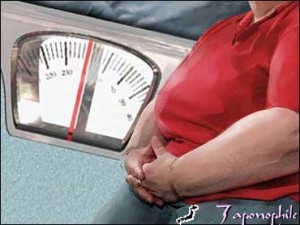
Why is it important to talk about this? Because as a nation, here in the U.S., statistics show that obesity is rapidly reaching epidemic proportions. In the past, the U.S. was the most obese nation on the planet, although of late other countries have claimed the top spot and the U.S. has instead only placed in the top five.
I’ve talked about all the different causes of obesity – diet, sugar/high fructose corn syrup, chemicals, and stress – but no matter how you cut the mustard, the truth is that if we continue the path we’re on, there is something ugly looming on the horizon.
And that is the obesity apocalypse.
But the real apocalypse will occur in 2030. That’s the year, according to a study that came out a few years ago in the medical journal Obesity, that nearly every American will be overweight or obese.
The study, led by Dr. Youfa Wang of the Johns Hopkins Bloomberg School of Public Health in Baltimore, says that if current overweight and obesity trends continue, 86 percent of Americans could be overweight or obese by the year 2030.
And even more troubling, the authors note, is the fact that “by 2048, all American adults would become overweight or obese.”
Dr. Wang of John Hopkins also said that the increase in metabolic disease and other weight-related conditions could have a catastrophic toll on public health — and on the public pocket. If these predictions come to bear, Wang and his colleagues estimate that the additional overweight and obesity burden could add up to an extra $860 billion to $956 billion per year in health expenditures to treat these conditions.
All told, this would mean that $1 in every $6 spent on health care would be spent as a result of the overweight and obesity epidemic.
Obviously, we are in dire need of reversing course, and doing it soon…or else.
Dr. David Katz, co-founder of the Yale University Prevention Research Center says, “We are terribly, ominously off-course. To close the gap, we need to fix everything that’s broken — from neighborhoods without sidewalks, to the high price of produce, to food marketing to children, to misleading health claims on food packages, to school days devoid of physical activity and school cafeterias devoid of healthful offerings. The list goes on and on.”
Others state that the path to reversing course lie in individuals taking responsibility for diet and lifestyle habits. Dr. Neal Barnard, founder and president of the Physicians Committee for Responsible Medicine (PCRM) and a staunch supporter of a vegetarian diet, says dietary modification could be a crucial step in solving the problem.
“U.S. eating habits are nowhere near where they should be,” he says. “The average American eats 50 pounds more meat and 20 pounds more cheese per year, compared to the 1960s. … I would strongly encourage Americans to adopt more vegetarian meals.”
The choice is ours.
I have a new free six-day email course that I am offering, entitled Enlightened Living: 6 Ways to Build an Authentic, Serene and Healthy Life. Read more about it here: The Enlightened Living Course or you can just sign up below to receive the course.
[gravityform id=”2″ title=”true” description=”true”]
